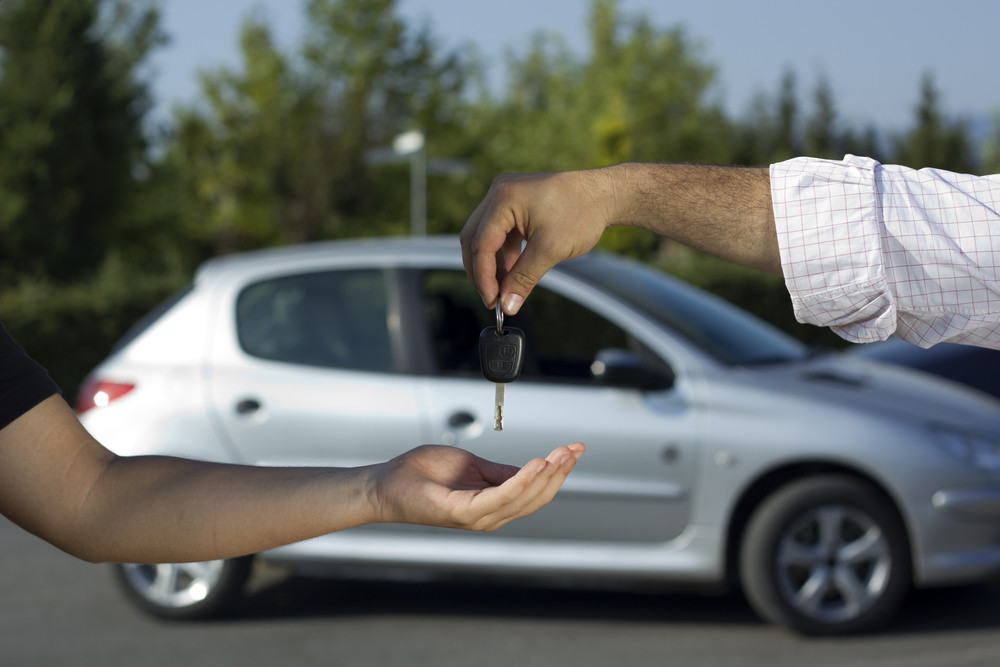
Questions You Should Ask Before Buying Your First Second-Hand Car
Thursday, November 22, 2018
Buying a vehicle is one of the biggest financial decisions the average adult makes, besides a home purchase. As with many other items, it can be considered savvy to buy used rather than new. However, you must do your research and ask the right things prior to committing. Finding the answers to these eight questions can help guide you through the process.
-
How Prepared are You for Potential Repairs and Maintenance?
Even a vehicle in good shape will require a repair or two at some point. And every vehicle will need regular maintenance to help protect your investment and keep you on the road. Here are some options to cover such costs, though each has its pros and cons:
- Start a savings account designated for vehicle maintenance and repairs.
- Purchase a maintenance plan if you buy the used car at a dealership.
- Get an extended warranty.
-
Which Cars or Trucks are Better for a Pre-owned Purchase?
Research the liability ratings for different makes and models of a vehicle. This can help you assess which ones may be better to purchase used. It is important to note specific years vehicles were made, since manufacturing processes, designs, features, and more can change from year to year as opposed car to car. As with any vehicle purchase, used or new, also consider the insurance costs for certain choices.
-
Why is the previous owner getting rid of the vehicle?
If you are considering purchasing your used vehicle from a dealership, you may not be able to get this fully answered. If you are looking at buying directly from a previous owner, you can ask this question, and related ones like the following:
- Are there any quirks about the car that you should know about?
- Were there any major spills or water damage inside?
- How was the vehicle kept? Was it parked in a garage often, outdoors in full sun, etc.?
Unless the previous owner is someone you know and trust, you will have to take whatever answers they provide at face value. Our next question deals with the less than honest second-hand auto seller.
-
Was the Vehicle Ever in a Collision or Damaged by Weather?
Obtaining a vehicle history report can be a valuable tool to help you make a wise decision. It contains information linked to the Vehicle Identification Number (VIN) in reported incidents like auto collisions, vehicle theft, major damage due to weather, and more. Basic free reports are offered by various sources like CarFax.
Detailed reports can also be purchased from some of the same providers. However, not all accidents and subsequent repairs would be included if they were never reported. Here are just some of the clues that could mean the vehicle was previously damaged:
- Mismatched paint or parts
- Multiple dents in one area
- Paint or panels that look too new for the vehicle’s age
- Missing parts, particularly along the frame and within the wheel wells
-
Did the Previous Owner(s) Provide Regular and Necessary Maintenance?
Just like asking about the reason for selling, asking if the owner provided regular maintenance is something you may have to take the seller’s word for. It isn’t a guarantee. Some private sellers are able to provide fairly reliable information, like maintenance history records.
-
Has the Manufacturer Issued any Recalls?
There are multiple ways to check vehicle recalls easily. Two common methods are: searching the Consumer Reports list of recalls online or looking directly at the manufacturer’s website.
-
Have There Been any Aftermarket Changes Made to the Vehicle you’re Considering?
If you’re not familiar with cars, it’s a good idea to have a trusted mechanic inspect the vehicle for things like aftermarket modifications. Although some are made more for looks, others can affect reliability, safety, and compliance with regulations.
Be cautious of vehicles that have:
- Sound-changing mufflers.
- Altered wheel alignments or suspension.
- Turbochargers.
- Boost gauges.
-
Is the Title Readily Available?
Sometimes the person selling the vehicle might not be able to locate the title. This can mean various things, such as they just lost it, or they didn’t pay off the car loan yet. If you were to purchase without receiving the title, there would be additional work and costs on your part. The easiest solution is to have the owner of the vehicle obtain a new title before you proceed with sale.
Final Thoughts
Buying a used car for the first time requires planning and research. But it doesn’t have to be a scary situation. Taking the suggestions above, as well as a few other steps, can help ensure that you don’t end up with a lemon. You want the right vehicle and not one you’ll regret.
To learn more about buying your first pre-owned vehicle, contact the professionals at ProtetiveAgency.com at (877) 739-9367. Our licensed insurance agents will be happy to answer any questions you have.
